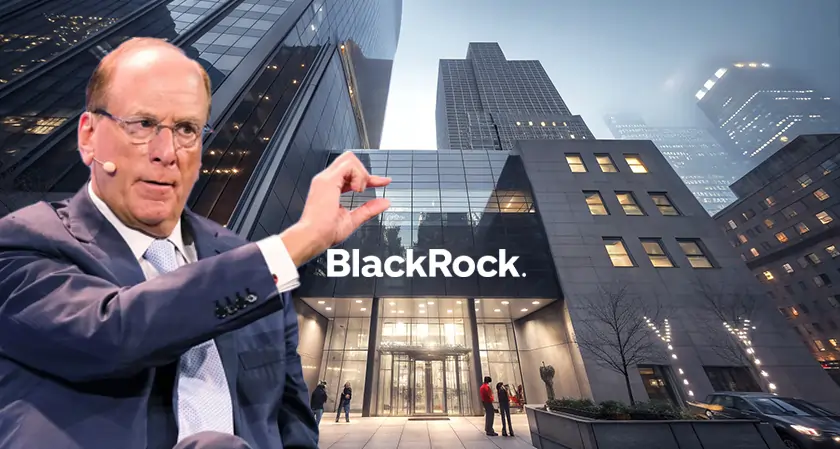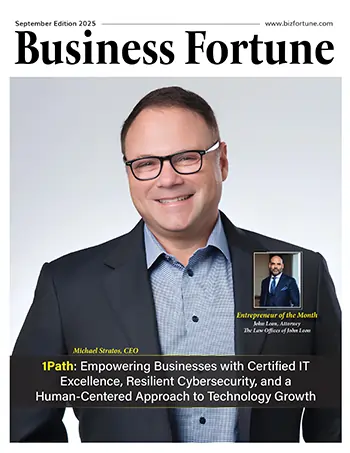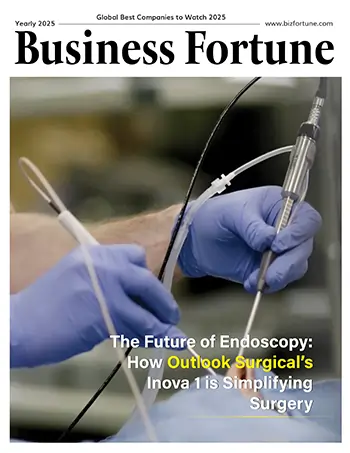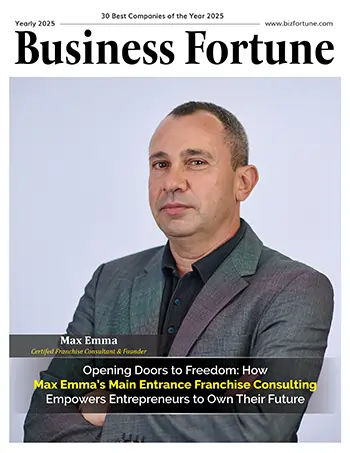Home Industry Fintech and Financial Services BlackRock: The Unseen Powerhou...
BlackRock: The Unseen Powerhouse Stemming Global Finance
Fintech and Financial Services

Business Fortune
01 April, 2025
Besides underpinning an asset management firm, BlackRock also provides evidence of the mechanism of influence. It was founded in New York in 1988 by eight partners - Larry Fink, Bob S. Kapito, Susan Wagner, Barbara Novick, Ben Golub, Hugh Frater, Ralph Schlosstein, and Keith Anderson-BlackRock then grew in leaps and bounds. Today, the firm manages almost $10 trillion, or one-quarter of the money circulating globally.
Once an investment management firm, BlackRock began looking outside for growth. This took the form of acquisitions that brought in top minds and innovative risk management capabilities. Today, its clients include plans and asset owners from corporations, states, insurance companies, banks, sovereign wealth funds, and individual investors. About two-thirds of BlackRock's assets are related to retirement, thereby establishing a hold on the financial security of millions around the world.
BlackRock's Unmatched Worldwide Presence
Nonetheless, the financial behemoth also operates locally in every international market; in other words, local financial services marketing enhance global expertise. Major capital markets serve as investment hubs in 25 cities, including New York, London, San Francisco, Tokyo, and Hong Kong. Custom financial solutions are also provided by account managers in over 70 locations across 34 countries.
These assets include mandates for various asset classes, such as cash, fixed income, equities, and alternative investments. The firm oversees advisory mandates and long-term portfolio liquidation tasks totaling over $1.7 billion. BlackRock, which has been listed on the NYSE under the "BLK" symbol since 1999, further cemented its market dominance in 2011 when it was included in the S&P 500 Index.
Technology's Power: Aladdin and Investing's Future
Aladdin (Asset, Liability, Debt, and Derivative Investment Network), the world's first-generation AI-backed trading algorithm, is the foundation of BlackRock's success. It processes approximately 250,000 trades daily, handling over 50% of all exchange-traded funds (ETFs), 17% of the bond market, and 10% of the overall stock market. With a network of about 5,000 supercomputers, Aladdin serves as the financial world's central nervous system, orchestrating investment strategies on a global scale.
Many large banks, hedge funds, and financial institutions rely on Aladdin for risk management and portfolio optimization. Because of its enormous impact, there are worries that a systemic breakdown might lead to an unprecedented global financial disaster. As financial markets become increasingly dependent on AI-driven decision-making, debates continue over market stability and the risks of automation in investment strategies.
BlackRock and Vanguard: Two Giants That Overlap
State Street, Vanguard, and BlackRock are the Big Three asset management companies for passive funds. Notably, Vanguard is BlackRock's biggest shareholder and shapes the complex financial conglomerate that dominates international markets. Vanguard's intricate ownership structure connects it to the wealthiest and most influential families worldwide, adding intrigue to the company's activities.
Vanguard and BlackRock together have a significant impact on the worldwide media landscape. Both companies own shares in Time Warner, Comcast, Disney, News Corp, Fox, CBS, NBC, MSNBC, CNBC, CNN, and Sky, according to Common Reader. In order for BlackRock to create stories on the largest scale feasible, this successfully and cogently blurs the boundaries between financial power and business competitiveness.
Aladdin’s Role in the 2008 Financial Crisis and Beyond
Aladdin was a significant bulwark for the financial world in 2008. U.S. authorities and major financiers used the BlackRock algorithm to evaluate which assets to save and which to dump. Its analysis informed the operation of the Federal Reserve and U.S. Treasury in determining the allocations of the $2 trillion post-crisis bailout, ironically benefiting some of the very assets in which BlackRock had substantial investments.
Post-crisis, BlackRock started to exert even greater influence. In 2017, CEO Larry Fink launched Project Monarch, an operation designed to replace human fund managers with AI algorithms. Today, more than 70 percent of all trades executed in the U.S. stock market are being done by machine programs clear demonstration of the increased reliance on automated financial systems.
Moral Issues and the Risk of BlackRock's Influence
BlackRock's advancements in technology have transformed the landscape of asset management, but they also come with associated risks. The firm's stronghold on trading algorithms and financial information provides it with unmatched market influence, putting smaller investors at a disadvantage. The potential for a breach in the Aladdin network alone could lead to an unprecedented crisis for the whole system.
In addition to its role in finance, BlackRock significantly influences governmental policies. High-ranking officials in President Joe Biden's administration, such as Adewale Adeyemo from the Treasury Department and Brian Deese, chair of the National Economic Council, have connections to the firm. This revolving door situation raises concerns about the effectiveness of regulatory oversight and potential conflicts of interest, as regulators might be influenced by their previous roles.
Conclusion: The future of finance powered by AI
The enormous potential of financial technology is demonstrated by BlackRock's rise from a small investment firm to the world's top asset manager. BlackRock has grown into a financial behemoth with trillions of dollars in assets under management, ownership in large companies, and an AI trading system that influences global market movements.
Even though AI is clearly changing the financial industry, companies like BlackRock will continue to grow in importance. There are legitimate worries regarding equity, transparency, and systemic risk when AI is included in financial markets. Who really controls the world economy and what may happen if these algorithms have too much power beyond what is regulated?
The AI-driven financial revolution is now a reality. BlackRock will continue to have a significant and maybe unrivaled impact on the world economy as it expands its already significant influence.


































